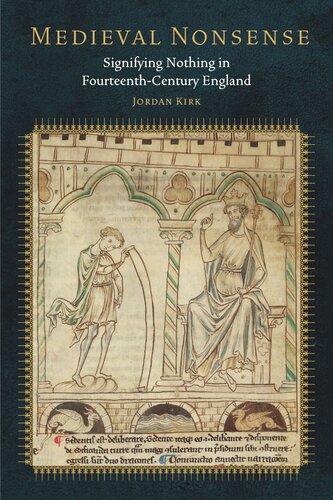

Most ebook files are in PDF format, so you can easily read them using various software such as Foxit Reader or directly on the Google Chrome browser.
Some ebook files are released by publishers in other formats such as .awz, .mobi, .epub, .fb2, etc. You may need to install specific software to read these formats on mobile/PC, such as Calibre.
Please read the tutorial at this link: https://ebookbell.com/faq
We offer FREE conversion to the popular formats you request; however, this may take some time. Therefore, right after payment, please email us, and we will try to provide the service as quickly as possible.
For some exceptional file formats or broken links (if any), please refrain from opening any disputes. Instead, email us first, and we will try to assist within a maximum of 6 hours.
EbookBell Team

5.0
28 reviewsIn a series of close and unorthodox readings of works by Priscian, Boethius, Augustine, Walter Burley, Geoffrey Chaucer, and the anonymous authors of the Cloud of Unknowing and St. Erkenwald, Jordan Kirk reveals the way that writers across the fourteenth century reckoned with the word as mere sound. Medieval Nonsense rebuts the idea that single-minded devotion to the kernel of meaning within the word motivated these authors in their engagement with vox sola, the mere utterance. Rather, they recognized the possibilities inherent in the accounts of language transmitted to them from antiquity, and they transformed those accounts into new ideas, forms, and practices of nonsignification.
Identifies a medieval throughline to modernist literature's engagement with nonsense, forming a case-in-point that modernist ways of reading are appropriate to medieval materials and that accounts of nonsense as a modernist innovation must be rethought.